Iran says IAEA’s latest report unfair, does not reflect truth
Iran’s Foreign Ministry says that the International Atomic Energy Agency (IAEA)’s latest report on the country’s stockpile of enriched uranium is not fair and does not reflect the truth about the talks between Iran and the agency.
Foreign Ministry spokesman Saeed Khatibzadeh made the remarks during a press conference on Tuesday, referring to a quarterly IAEA report that claimed Iran’s stockpile of enriched uranium had grown to more than 18 times the limit agreed in the 2015 Iran deal, officially known as the Joint Comprehensive Plan of Action (JCPOA).
The IAEA report, published on Monday, “estimated that, as of May 15, 2022, Iran’s total enriched stockpile was 3,809.3 kilograms.”
The limit in the 2015 deal was set at 300 kg (660 pounds) of a specific compound, the equivalent of 202.8 kg of uranium.
Moreover, in a separate report published on the same day, the UN agency raised “questions on the origin of uranium particles found at three undeclared sites despite a fresh push for a breakthrough.”
Khatibzadeh said that after an agreement was reached between Tehran and the IAEA in March, Iran delivered technical responses and documents during several meetings with the agency and provided written answers to the questions raised by the IAEA.
The aforesaid report, Khatibzadeh added, is the one IAEA director General Rafael Grossi “announced hastily ahead of the UN’s body third visit to Tehran” under the current Iranian administration.
“The report was concluded at the time of or even before the meeting between Iran and IAEA and it seems that the conclusion was reached hastily,” he said, expressing concerns that the pressure exerted by the Zionists and some other parties has deviated from the report from its normal “technical path to a political path” which “we hope to reform.”
Asked about the possibility of adopting a resolution by the IAEA Board of Governors, the spokesman said that the UN body had to be “very careful” to stick to the technical path and the agency’s statute.
Unfortunately, elements such as the Israeli regime have always tried to intervene with initiatives, abuse the IAEA or spy on it, or sabotage and forge documents, he lamented.
He further urged the IAEA “not to destroy the path we have come so far with difficulty.”
Elsewhere in his presser, Khatibzadeh was asked to comment on recent remarks by US special envoy for Iran, about which he stated that what US officials say with regard to their domestic political affairs “does not meet our criteria to comment.”
Robert Malley said on Wednesday that the prospects of a return to the Iran deal are “tenuous at best,” but also claimed that the Biden administration still believes it is in the national security interest of the United States to try to salvage the agreement.
Khatibzadeh said, “what matters to us is the messages delivered back and forth between us and the US [within the framework of the Vienna talks to revive the 2015 deal].”
“Iran has announced its initiatives, and if the US stops being hesitant and makes a political decision, there would be no dead-ends and we can reach a deal,” he said.
On a separate note, speaking on the fate of two Greek oil tankers seized in the Persian Gulf, he advised the Greek government to follow up on the issue by taking legal action and getting a lawyer instead of making a fuss.
Iran’s Islamic Revolution Guards Corps (IRGC) on Friday seized two Greek oil tankers in the Persian Gulf over violations, days after an Iranian oil tanker was captured by Greece in its territorial waters followed by the transfer of the oil to the US.
He said that the violation of the law and the seizure of ships is not a new thing and that it is “better safe than sorry.”
All the Greek oil tankers’ crews are safe and sound and have contacted their families, he added.
Once Iran’s oil tanker was seized illegally, “we tried to activate diplomacy,” he said, adding that Iran’s foreign minister contacted his Greek counterpart but the Greek government showed that orders made by a third party were more important to them.
“The US and other third parties never wish well for relations between Iran and Greek,” he said.
‘IRGC colonel to be avenged painfully’
Khatibzadeh also said that Iran will take a painful revenge for the assassinated IRGC colonel, Hassan Sayyad Khodaei.
The terrorist attack that claimed the life of Colonel Khodaei took place in the Iranian capital on May 22. He was reportedly assassinated after two motorcyclists shot him five times before fleeing the scene.
The IRGC issued a statement soon after the assassination, saying that its former member was assassinated in a terrorist attack by counterrevolutionary elements.
Khatibzadeh said that “we know who is behind the terrorist attack. They received our messages … and the response was definitely painful.”
‘Russia is our friend; Iran, Ukraine have intimate relations’
On mediating between Russia and Ukraine, Khatibzadeh said that “Russia is our friend and we have intimate relations with Ukraine.”
He added “we have tried to maintain our relations in a way to keep our influential role”, adding that how the dialogs should proceed and what they should be about must be determined by Ukraine and Russia.
“We had some ideas and have put them foreword and even suggested them to the UN, we have to move forward based on the realities, people are hurting here and this must end,” he said.
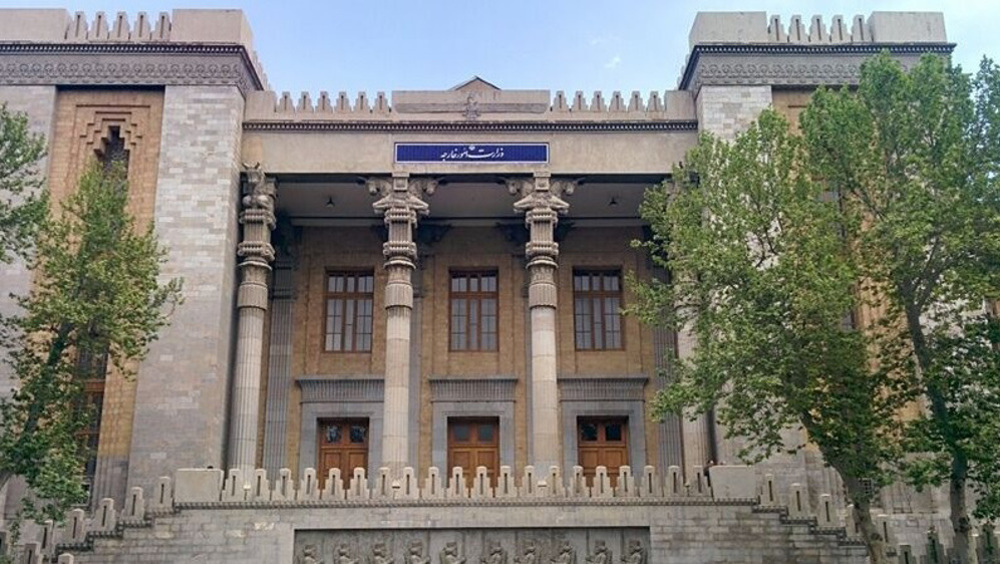
Iran summons Polish envoy over 'baseless, biased' drone claims
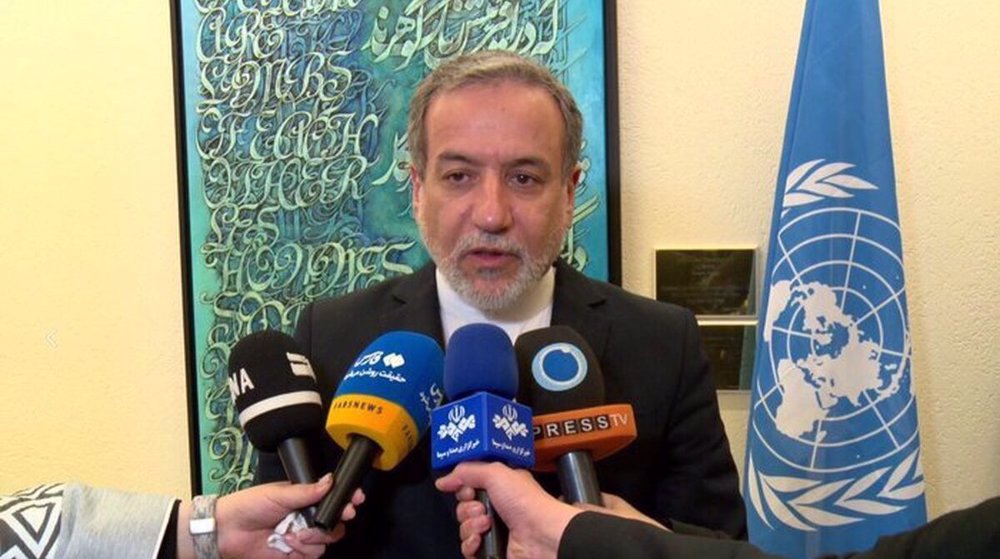
‘Misguided policies’: Araghchi says unjust sanctions inflict suffering on innocent Iranians
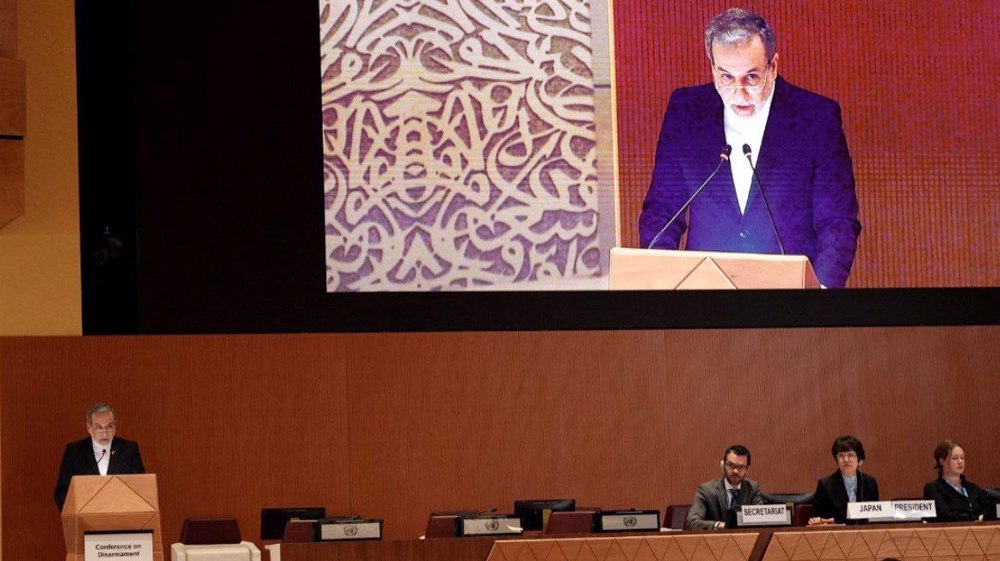
‘Grave threat’: Iran says Israel’s nukes endangering world, blasts US nuclear spending spree
Australian senator smeared by anti-Iran groups for saying Iranian women 'have a voice'
Hezbollah's display of power proved resistance cannot be eliminated: Iran parl. speaker
Israel escalates West Bank raids as official says regime seeking to complete Gaza genocide
Palestinian man dies in Israeli prison as Foreign Ministry urges intl. probe into regime’s crimes
Putin says not opposed to Europeans’ involvement in Ukraine talks
VIDEO | Iranian Kurdish protesters demand European action against PKK, PJAK terror
VIDEO | Israel expands offensive in northern West Bank, deploys tanks to Jenin
VIDEO | Spaniards fill streets of Cádiz in solidarity with Palestine





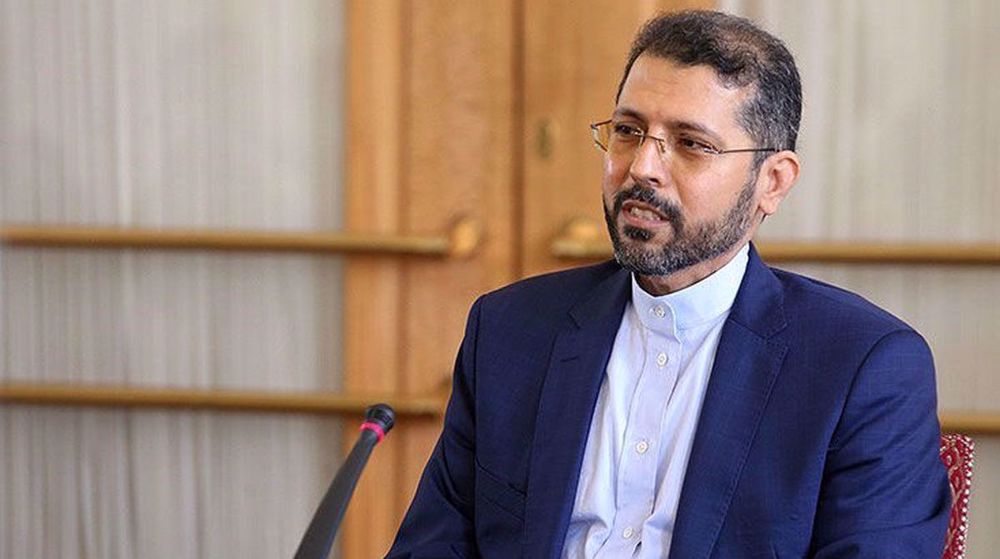
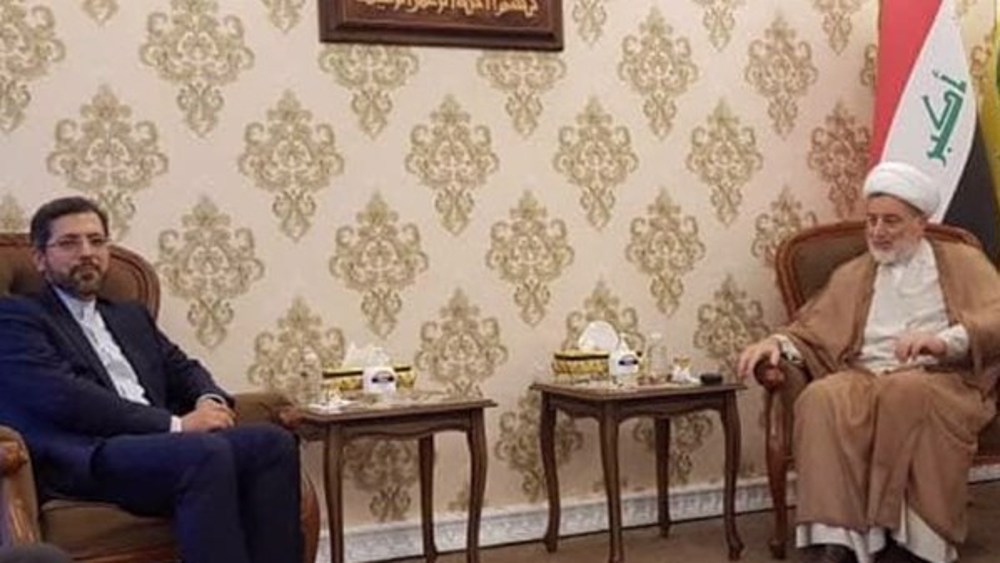

 This makes it easy to access the Press TV website
This makes it easy to access the Press TV website